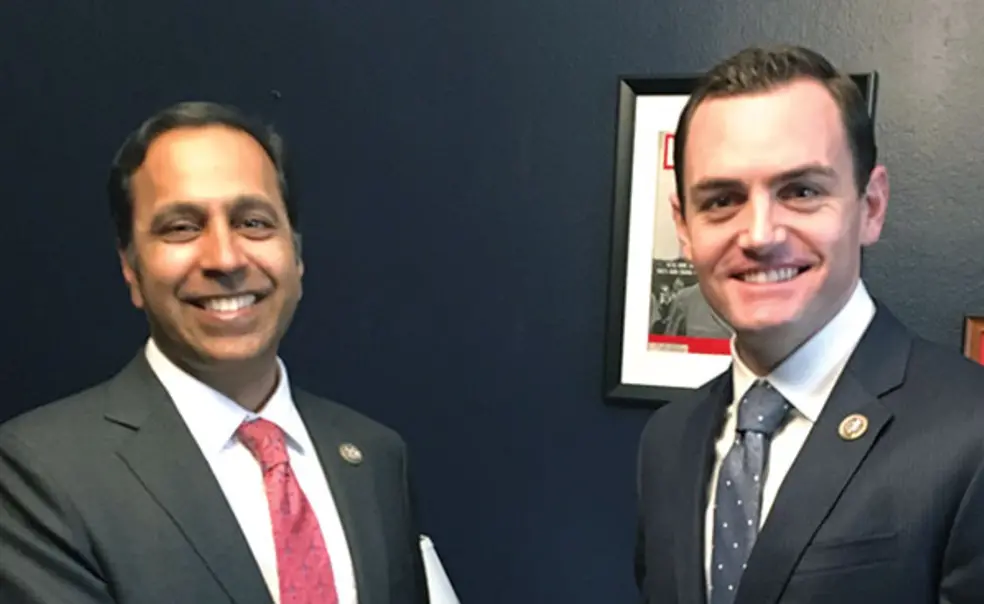Raja Krishnamoorthi ’95 and Mike Gallagher ’06: From Across the Aisle, A Caucus on Jobs is Born
Raja Krishnamoorthi ’95 and Mike Gallagher ’06 never crossed paths at Princeton alumni events, but when they met at a congressional orientation session after winning House seats in 2016, the two thought they might have something in common beyond their alma mater — a concern for middle-class jobs.
Krishnamoorthi, a Democrat from the western suburbs of Chicago, and Gallagher, a Republican representing a district that includes Green Bay, Wis., formed a congressional caucus to improve the economic outlook for the middle class.
Coming from the Midwest, a region beset by a sagging manufacturing sector and uneven economic and wage growth, helped to unite them across partisan divisions.
The two lawmakers’ wonkishness can be traced back at least as far as the Woodrow Wilson School, where Gallagher earned his degree and Krishnamoorthi earned a certificate. Krishnamoorthi became a lawyer and served as an early staffer to a then little-known House candidate, Barack Obama. Gallagher served in the Marines for seven years on active duty, including two tours in Iraq as a captain of intelligence.
In early 2017, they established the 12-person bipartisan Middle-Class Jobs Caucus to delve into issues such as changes in the labor force and technology policy. “People feel their expenses going up, but their pay is flatlining,” Krishnamoorthi says. “How do we help these folks who are working hard and want to retire with dignity?”
Collectively, the two lawmakers organize monthly meetings for members of Congress and their staffs. This year, meetings on artificial intelligence and Bitcoin’s impact on the job market were standing-room only. Other sessions have addressed the manufacturing economy and health-care policy. Gallagher and Krishnamoorthi take pains to invite speakers from a cross-section of ideological perspectives.
Their efforts have helped produce two bills, one of which has passed the House. The Strengthening Career and Technical Education for the 21st Century Act (H.R. 2353) passed on a bipartisan voice vote and awaits action in the Senate. “Four-year colleges may not be for everyone, but a postsecondary education has to be,” Krishnamoorthi says. “There are 6 million unfilled jobs because employers can’t locate the skills and knowledge they need.”
They also co-sponsored the AI Jobs Act of 2018 (H.R. 4829), another bipartisan bill that would commission a Labor Department study of the benefits and drawbacks of artificial intelligence on the nation’s workforce. It has not been voted on yet.
“There’s no silver bullet for increasing labor-force mobility and participation,” Gallagher says. The downward impact of automation on jobs “is only going to increase with artificial intelligence,” he adds.
They say at least some of the credit for the Middle-Class Jobs Caucus goes to their shared academic experience. “Princeton and the Wilson School did a great job of getting us to think critically,” Krishnamoorthi says. “I remember distinctly that the professors got us to ask questions as much as forming our opinions.”












No responses yet